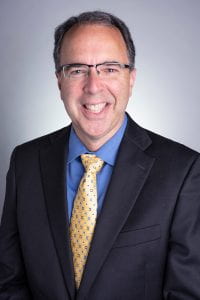
BLOOMINGTON, Ind. – Many experts have praised health savings accounts – commonly known as HSAs – for providing a triple tax break. Money is deposited pretax, can grow tax-free and is not taxed when it is spent, as long you as the expenses are eligible. During the pandemic, they have become an important way to save for unexpected healthcare costs.
But for those graduating from college and beginning a new career, health savings accounts also can be the first key to accumulating wealth, according to a new article by Greg Geisler, clinical professor of accounting in the Indiana University Kelley School of Business.
“Employees beginning their career often wonder how to gain financial freedom as soon as possible. Options for part of their monthly paycheck not allotted to spending include investing and paying down debts,” Geisler said. “Articles in the financial press often recommend getting the maximum employer 401(k) match since it is essentially free money. But after that, the recommendations vary and there is little analysis of which recommendation maximizes wealth. No one is talking about health savings accounts.”
 Writing in the current issue of the Journal of Financial Service Professionals, Geisler ranked the most tax-efficient financial moves that young people should make when beginning a career. His first two steps are to put the maximum into a health savings account and put enough into a 401(k) to obtain the greatest employer match.
Writing in the current issue of the Journal of Financial Service Professionals, Geisler ranked the most tax-efficient financial moves that young people should make when beginning a career. His first two steps are to put the maximum into a health savings account and put enough into a 401(k) to obtain the greatest employer match.
“Ideally, these first two moves should be made together,” he said. “Even if your HSA doesn’t have an employer contribution, if you’re in the 22 percent tax bracket, where many new college graduates find themselves in, this health savings account will actually make you wealthier than a 50 percent employer match on your 401(k).”
“Retirement accounts have two tax advantages, but an HSA is the only account that has three.”
You can only set aside money in an HSA if you have high-deductible health insurance plan coverage, which is becoming the most commonly provided coverage offered by employers.
In the last year, the list of eligible health related expenses that can be paid or reimbursed for out of an HSA has expanded, now including over-the-counter medications. On March 26, the IRS also said that face masks, hand sanitizers and sanitizing wipes purchased to prevent the spread of COVID-19 were eligible.
While some consumers may tap into their health savings account immediately, Geisler said it may be more advantageous to hold onto receipts for when they “need some tax-free cash.” Young people typically have lower healthcare costs and can invest their funds in stocks inside the HSA and watch the size of this account grow tax-free.
“This is not like a flexible spending account, which is ‘use it or lose it.’ With a health savings account, you have it for the rest of your life and you can reimburse yourself immediately or you can wait,” he said. “There is a lot more that you can reimburse yourself for over the course of your life than you might think.”
Geisler shares a practical, real-life example of someone starting their career with students who take his senior-level personal finance course. Assuming a $60,000 salary, that person in his illustration, who follows the two steps outlined above needs to spend only $370 a month less to get the maximum employer 401(k) match (assumed to be 50% of the first 5% of salary) and put the maximum in their HSA.
“You never realize you missed out on that $370 you saved because you do the 401(k) up to the maximum employer match and you do the health savings account both through withholdings from your pay,” he said. “If you don’t see it, you don’t miss it. If you don’t spend $370 per month you can have $8,100 invested in stocks in one year inside your HSA and 401(k) due to all of the tax savings and are starting down the road toward financial freedom. Further, it can be a smaller amount of withholdings if you have an employer who puts money in your health savings account.”
After these first two steps, Geisler recommends career starters pay off all high-interest-rate debts, then contribute to a Roth IRA annually, since the contributions can be used for emergency spending needs tax free. “There are other things you can do, but I focus on these four steps because they are things that someone starting a career potentially can do,” he said.
Geisler’s article, “On the Way to Financial Freedom When Beginning a Career,” appears in the Journal of Financial Service Professionals. Reporters may request a copy by contacting George Vlahakis at vlahakis@iu.edu.